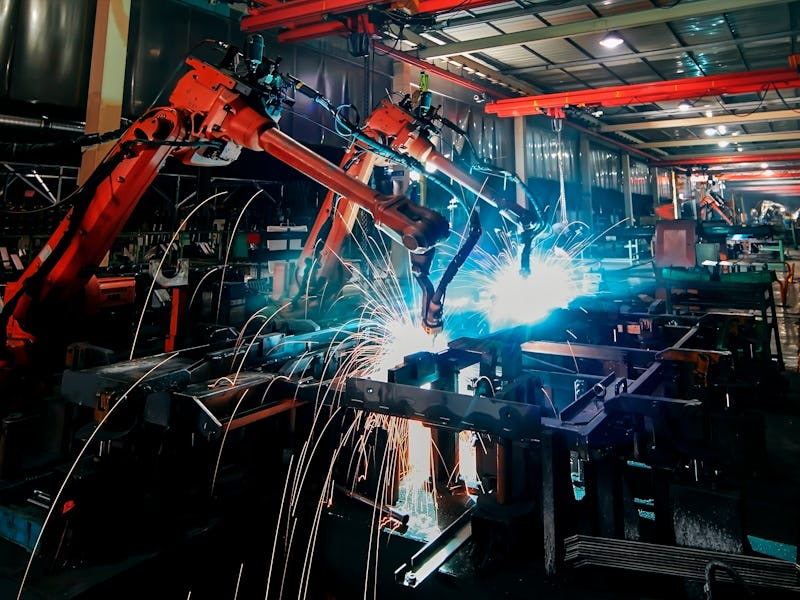Trump's trade wars had an unexpected effect on factory robots in 2019
Though automation is increasing every year, it appears Trump's trade wars slowed its growth in 2019.

Companies are automating jobs more and more every year, but it appears automation slowed in 2019 thanks to Donald Trump's trade wars. The manufacturing industry is currently in a recession partially due to the Trump administration's trade wars, which is one of the main reasons for this slowdown.
There was a 16 percent drop in the number of robots American companies installed in the manufacturing sector in 2019. The total number of shipments of robots fell to 23,758, according to Reuters. That number exceeded 28,000 in 2018. Until 2019, shipments of robots had been increasing every year since 2015.
One of the reasons the Trump administration has been engaging in trade wars is that it wants to bring jobs in manufacturing and beyond that have been outsourced over the years back to the United States. Unfortunately for the manufacturing sector, these trade wars have actually helped cause the industry to go into a recession.
It's been clear since at least September that the American manufacturing sector is in a serious recession, as there has been a significant decrease in the amount of American-made goods being ordered and jobs are being eliminated in the industry.
Peter Boockvar, chief investment officer at Bleakley Advisory Group, told CNBC in October that we have "tariffed our way into a manufacturing recession." A key indicator of how the manufacturing sector is doing—the manufacturing index—dropped to its lowest level since the 2009 financial crisis in September.
Though there was a slowdown in how many robots were installed by American companies last year, it's clear American companies are still investing in automation overall. Due to a labor shortage, corporations have been investing heavily in automation in recent years.
A Reuters report from October found there was a 15 percent increase in the number of times companies mentioned automation in quarterly earnings calls between 2018 and 2019. Automation was mentioned on these calls twice as much last year as it was in 2016.
Jeremie Capron, head of research at ROBO Global, told Reuters at the time that it's becoming much easier for companies to automate as the technology becomes more accessible.
“We’ve hit the level where you don’t need great engineering skills to deploy automation because the software has made it so much easier to use,” Capron said. “You’re seeing not only large multi-national groups automate, but those technologies are increasingly available to smaller and mid-sized businesses.”
As we've previously reported, experts claim automation could kill 800 million jobs globally within 15 years. This kind of automation isn't just going to happen in the manufacturing sector, as we're increasingly seeing A.I. used to automate white-collar jobs in the legal industry, the financial industry, tech and beyond.
See also: What will life look like when most jobs are automated?
Democratic presidential candidate Andrew Yang has made automation a key topic in his campaign and is advocating for a Universal Basic Income (UBI) program to help alleviate the suffering that so many jobs being automated could cause. This manufacturing recession may have decreased how many robots were installed last year, but automation is still growing in popularity in many industries.